To request a Distinguished Lecturer for an upcoming chapter event, review the list of Distinguished Lecturers’ various talks below and reach out to the lecturer directly via the contact information provided. Distinguished Lecturers are volunteers of the Society, not full-time staff. Meaning, lecturers determine their travel arrangements and time commitment around their individual, work-life balance schedules.
In order to secure a lecturer, make sure to contact the lecturers early and preferably months prior to your event. If a lecturer is available at the time of your event and accepts a talk invitation, the lecturer will travel to your chapter or give a virtual lecture at no cost to the chapter.
Application Period: June 1 – August 31
Applicants must complete their submission by the submission deadline.
A complete application package submitted must include:
Apply Now!
Submission Deadline: August 31
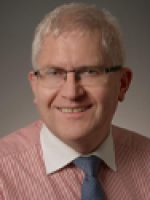
Read Abstract
Light has the potential to recognize the development of diseases, to prevent them or to heal them early and gently. Traditionally, however, lens-based imaging results in bulky systems. We outline the 3D imaging with needle-sized, lensless multicore fiber endoscopes using holography. Deep learning is promising for label-free cancer diagnostics in neurosurgery using minimally invasive endoscopy. Besides biomedicine, data transmission with fiber networks will be highlighted. Multimode fibers show promise for improving data rates in optical communications but come with the challenge of compensating for scattering effects. Physics-informed deep learning enables to correct the scattering, resulting in advancing security and data rate. Fiber imaging promises advances in various fields such as information, biomedicine and environmental protection.
Read Abstract
Prof. Czarske grew up on a small farm and the path seemed set, but successes at school and hobbies in physics, chemistry and electronics changed perspectives. After graduating from high school, he was the first in the entire family to study. Supported by the Siemens scholarship, he was able to study not only electrical engineering but also physics. After completing his doctorate, he worked in an industry-oriented research institute and furthermore conducted research in the USA and Japan. In 2004 he founded a chair and institute (Czarske Lab) in Dresden dedicated to laser systems technology, deep holography for advances in biomedicine, fiber communication and green energy.
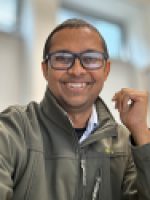
Read Abstract
Optical spectroscopy is widely used in non-contact materials analysis. Although laboratory bench-top spectrometers offer excellent resolution, range and sensitivity, their miniaturization is crucial for portable applications demanding indicative but instantaneous results. Among the recent developments in scaled-down spectrometers, an increasingly popular strategy is to use ‘reconstructive’ or ‘computational’ algorithm-based devices. Typically featuring spectral encoders with known optical responses, the measured electrical signals in such devices are combined to ‘approximate’ the incident spectrum through these algorithms. I will present an evolution of spectrometer miniaturization over the past 30 years and give examples of such disruptive concepts shaping future device technologies.
Read Abstract
Crossing disciplines in science can be a thrilling yet challenging endeavor. It opens up a world of possibilities, fostering innovation and unique perspectives. The joy lies in the unexplored connections and synergies that eventually emerge, stimulating creativity and intellectual growth. However, tribulations accompany this pursuit. Navigating unfamiliar territories requires overcoming countless barriers and bridging knowledge gaps. It demands patience, open-mindedness, and perseverance. Nevertheless, the rewards of crossing disciplinary boundaries make it an adventure worth undertaking. I will talk about my adventures in academia and the lessons I learned in my journey across the disciplines.
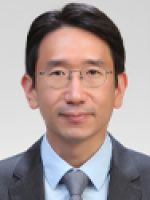
Term: 2024
Korea Advanced Institute of Science and Technology (KAIST), South Korea
Read Abstract
Optical frequency combs, with their unique features in both the time and frequency domains, have transformed precision science and engineering over the last two decades. In this lecture, I will present on the latest progress in the ultralow-noise frequency combs and their applications with an emphasis on precision timing, synchronization, and microwave/mm-wave photonics. Both mode-locked laser combs and chip-scale micro-combs can reach quantum-limited timing jitter performances, which allows for various timing applications with unprecedented precision. I will present innovative comb timing applications including attosecond optical timing, on-chip clock distribution networks, ultralow-noise microwave/mm-wave signal generation, photonic analog-to-digital conversion, ranging, imaging and vibration sensing, and timing and synchronization for ultrafast X-ray/electron science and radio astronomy.
Read Abstract
In the last decade, the application areas of frequency combs have greatly expanded. I’m currently working on several projects that make use of the unique properties of frequency combs. It’s really exciting for me to be able to collaborate and solve problems with experts from various fields, so it’s perfect timing as a researcher. However, I must admit that things do not always go as planned, and there are times when the timing is not ideal for my research plans. I’d like to talk about both good and bad timings in my career and how I dealt with them.
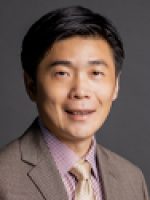
Read Abstract
In this talk, I will report recent progress on how chirality could transcend designs of advanced metasurfaces, sensing, BIC photonics and optical micromanipulations. In particular, we will report very recent results on realizing intrinsic chiral metasurfaces where the engineered slant geometry breaks both in-plane and out-of-plane symmetries. Our result achieves intrinsic chiral bound states in the continuum with near-unity CD of 0.93 and quality factor exceeding 2300 for visible frequencies. We will also cast new perspectives on using photonic orbit angular momentum to effectively discriminate single-size and multi-scale chiral nanostructures.
Read Abstract
Metasurfaces photonics (meta-photonics) and low-dimensional materials have been two important candidates in photonics. In this talk, I will report the most recent developments in plasmonic/dielectric metasurfaces, and focus on how monolayer TMDC and layered 2D materials could be hybridized with metasurfaces to realize novel light behavior, such as zero-dark-current and bipolar semimetal photodetector, monolayer meta-lens, enhanced SHG/PL, and tunable structural colors, by coordinating those two parties. Finally, we will elaborate our new breakthrough on van der Waals polaritonic metasurfaces, as a new roadmap toward ultra-low loss, long-range propagation, topological interfaces, and tailorable on-chip integrated functional devices. This talk illustrates how new photonics directions are identified and explored, serving as a case study for the students and young researchers to find their own niches and career path in the general area of photonic
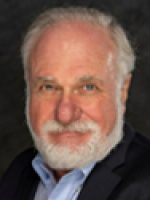
Read Abstract
Photonic integration has been at the center of photonic activity for several years. Over this period, great strides have been made to increase the integration density and integrated chip functionality. This talk will work its way up from the drivers for photonic integration – why do we need Photonic Integrated Circuits (PICs)? What are their similarities and differences with Electronic Integrated Circuits (EICs)? This analysis of integration drivers will lead to a discussion of recent progress on the main paths: monolithic, heterogeneous and hybrid. The talk will conclude with possible approaches to meet the additional demanding considerations for future Quantum PICs.
Read Abstract
Photonic startup business success relies heavily on the uniqueness and quality of its technical know-how. Success also depends heavily on a range of skills and activities beyond technical prowess. Business aspects such as marketing, sales, team leadership, commercial opportunity development, proposal preparation, program management, quality control, budgeting, funding and financial planning among others, are crucially important. This presentation will focus on dissecting all the skills and activities required for photonic startup business success. The presenter will attempt to do this through examples drawn from his own experience as a technical and business practitioner in large and small photonic companies.
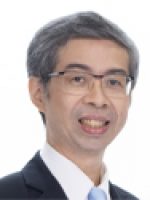
Read Abstract
Agri-photonics has shown benefits of light exploitation in agriculture. The integration of photonics and digital technologies has also assisted in paving the way for Agriculture 4.0 and beyond. This lecture encompasses the photonics-sensing in precision agriculture, aiming to navigate from pain points to prototypes. We show examples by delving into specific pain points in rice cultivation, fruit quality analysis, sericulture, and shrimp farming sectors. We also present cost-effective and scalable photonic-based prototypes as highly efficient remedies. Additionally, we introduce the concept of combining optical plasmonic sensing with quantum technology, opening doors to future advancements of photonics sensing systems for agriculture.
Read Abstract
Based on my research and management experience in a national research center, I share my experience in insights and practical tips on how to cultivate leadership skills while conducting research. By embracing these qualities, graduate students and researchers can inspire themselves and their peers, foster a culture of innovation, and make meaningful research works that benefits to society.
© Copyright 2024 IEEE — All rights reserved. A not-for-profit organization, IEEE is the world’s largest technical professional organization dedicated to advancing technology for the benefit of humanity.